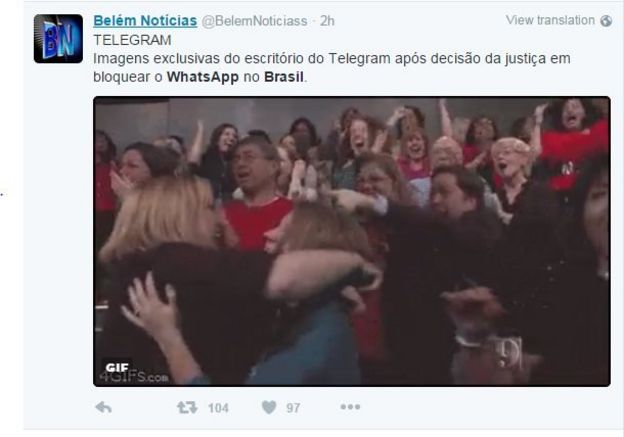
This article is more than
9 year oldThe third suspension in two years lasted for a few hours, affecting millions of users.
But Supreme Court judge Ricardo Lewandowski later lifted the nationwide blockage, saying it was disproportionate.
WhatsApp said they did not have access to the details requested.
The most recent suspension happened in May, and forced 100 million people to turn to alternative services - a huge proportion of the internet-using population in a country with some of the world's highest mobile phone charges.
In March, a Facebook executive was detained overnight for failing to comply with an attempt to block WhatsApp.
A Whatsapp spokesperson had said: "As we've said in the past we cannot share information we don't have access to.
"Indiscriminate steps like these threaten people's ability to communicate, to run their businesses, and to live their lives."
Correspondents said it was the latest clash in a battle between tech firms and judicial systems over how to collaborate in criminal investigations without compromising individual freedoms - like in the dispute between Apple and the FBI over access to the phone of the San Bernardino gunman.
Twitter users responded with frustration - and, in many cases, with humour:

End-to-end encryption - introduced in April - is a key advantage touted by WhatsApp.
In its website's frequently asked questions, it says: "Privacy and security is in our DNA, which is why we have end-to-end encryption in the latest versions of our app... [This] ensures only you and the person you're communicating with can read what is sent, and nobody in between, not even WhatsApp."
Technology commentators suggest the regular interruptions to service could dent WhatsApp's popularity.